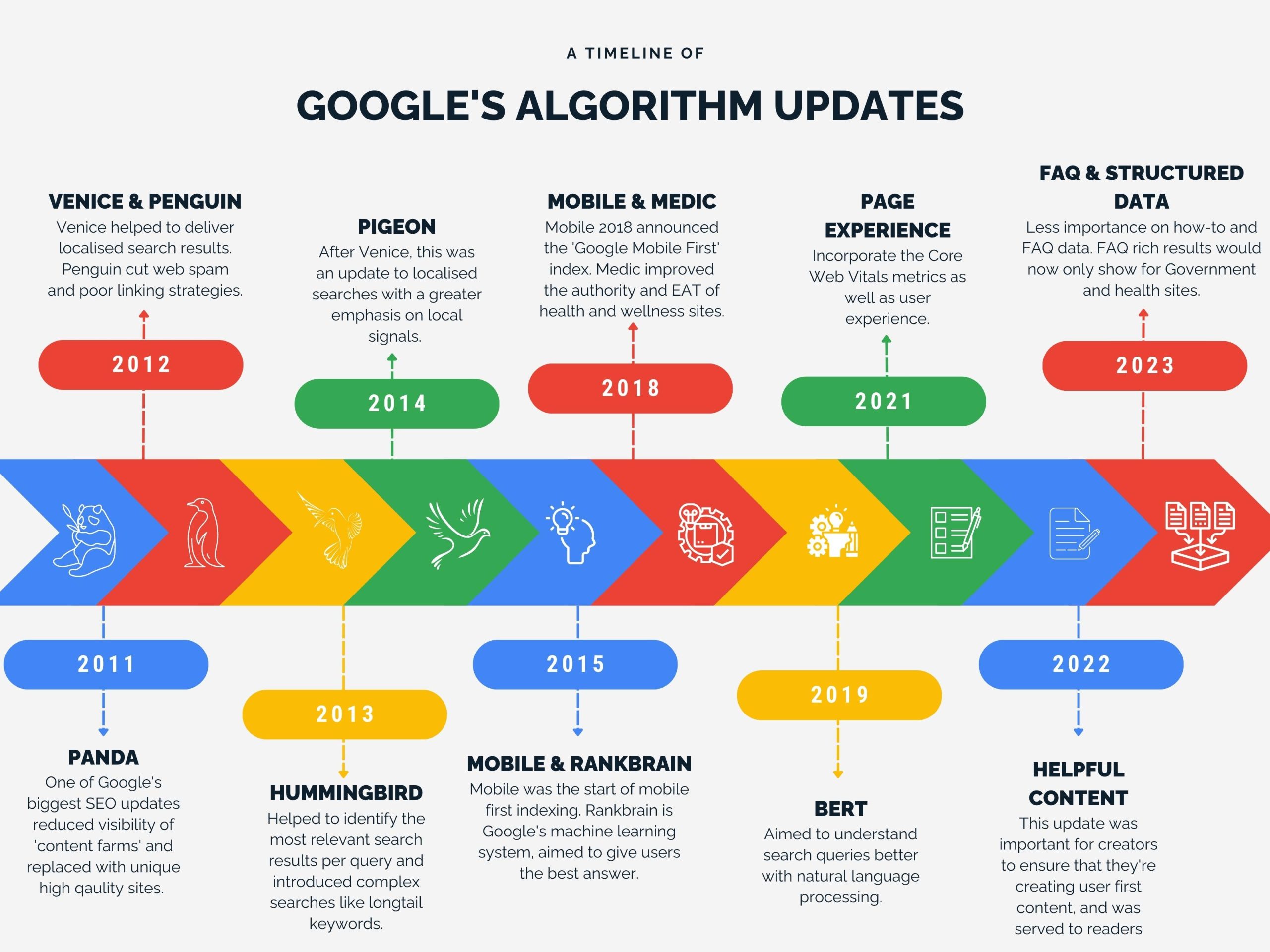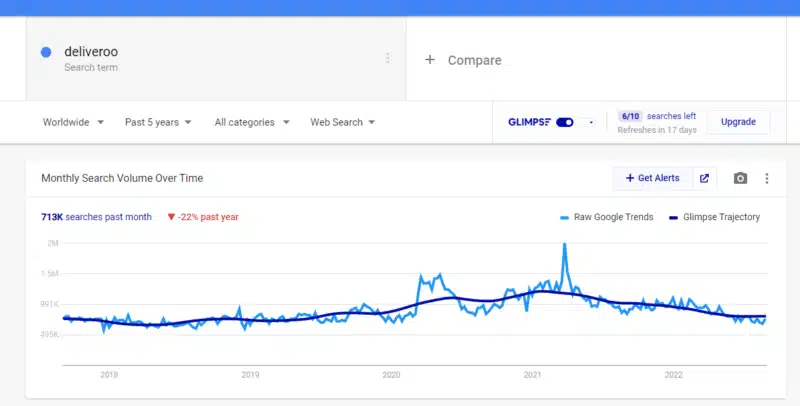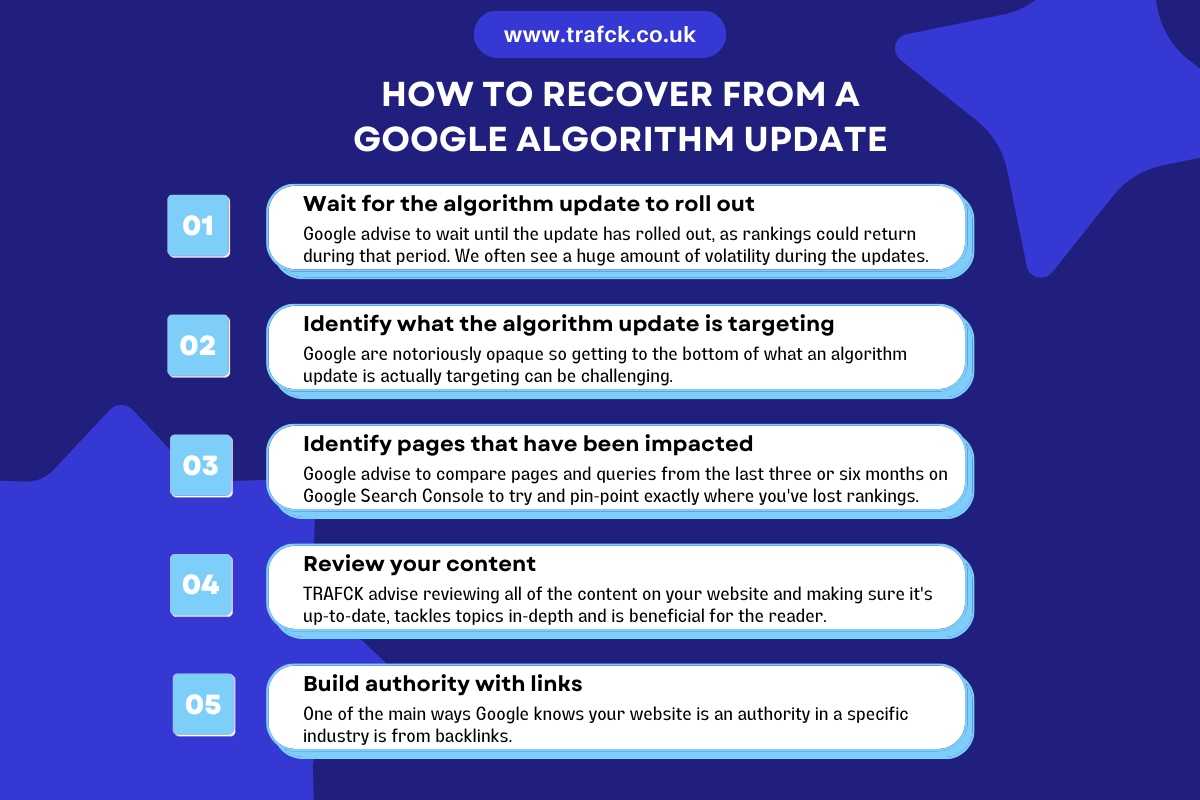SHARE

Google algorithm updates can be a nightmare for website owners. Suddenly, your website’s ranking can plummet, leaving you wondering what went wrong. But fear not! In this article, we will guide you through the steps to recover from a Google algoalgorithm update and ensure long-term success for your website.

Understanding Google’s Algorithm Updates
Google frequently updates its algorithm to improve search results and provide users with the best possible experience. These updates aim to reward websites that follow best practices and offer valuable content while penalising those that engage in unethical or spammy practices. But what exactly do these algorithm updates entail? Let’s delve deeper into the purpose and impact of Google’s algorithm updates.
The Purpose of Google’s Algorithm Updates
Google’s algorithm updates aim to deliver users relevant and high-quality search results. By constantly refining the algorithm, Google ensures that websites delivering exceptional value to users rise to the top while those engaging in manipulative tactics are pushed down in rankings. These updates are designed to keep up with the ever-evolving online landscape, where new websites are created, and new content is published every second. Google wants to ensure that users can find the most accurate and helpful information when they search for a particular topic. For example, if you search for “best restaurants in London,” Google’s algorithm will analyse various factors, such as user reviews, website authority, and relevance to your search query, to provide you with a list of the city’s most reputable and relevant restaurants. By constantly updating its algorithm, Google aims to improve the search experience for users and maintain its position as the leading search engine.
The Impact of Google’s Algorithm Updates on Your Website
When Google rolls out an algorithm update, it can significantly impact your website’s ranking and visibility. If your website’s content or practices do not comply with Google’s guidelines, you may notice a sudden drop in traffic and a decrease in organic search rankings. Algorithm updates can affect various aspects of your website, from keyword rankings to overall organic visibility. For instance, if your website has been using manipulative tactics to artificially boost its rankings, such as keyword stuffing or buying backlinks, you may find your website plummeting in the search results.
On the other hand, if your website consistently provides valuable and relevant content, adheres to ethical SEO practices, and offers a positive user experience, you may see an improvement in your rankings and increased organic traffic. Understanding how these updates can impact your website is essential so you’re equipped to take the appropriate action. Monitoring your website’s performance and staying up-to-date with the latest algorithm changes can help you identify potential issues and make necessary adjustments to maintain or improve your search visibility.
Remember, Google’s algorithm updates reward websites, prioritising user experience and providing valuable content. By aligning your website with these principles, you can ensure that you continue to rank well in search results and attract organic traffic. Google’s algorithm updates are crucial in shaping the search engine landscape. By understanding their purpose and impact, you can adapt your website’s strategies to stay ahead of the curve and deliver exceptional value to your users.
Identifying if an Algorithm Update Has Hit You
It’s crucial to determine whether your website has been affected by a Google algoalgorithm update or if the drop in rankings is due to other factors. Here are some key signs to look for:
Signs Your Website Has Been Affected
- Decreased organic traffic: A sudden and significant drop in organic traffic is often a clear indication of being hit by an algorithm update.
- Drop in keyword rankings: If your website’s keywords no longer rank as well as they used to, it could be a sign of an algorithmic hit.
Sudden changes in search engine result pages: If you notice drastic fluctuations in the search engine result pages (SERPs), with your website disappearing or moving significantly, there’s a high chance of being impacted by an algorithm update.
Using Google Analytics To Confirm an Algorithm Update
Google Analytics can provide valuable insights into your website’s performance. You can confirm whether your website has been affected by checking your organic traffic and comparing it to the dates of known algorithm updates. Look for any abnormal patterns in your organic traffic, such as sudden drops or unusual fluctuations. Cross-reference these dates with major algorithm updates to pinpoint the cause of the decline.
Steps To Recover From a Google AlgoAlgorithm Update
Conducting a Comprehensive Website Audit
The first step in recovering from a Google algoalgorithm update is conducting a thorough website audit. This audit should cover all aspects, including content quality, technical issues, and backlinks. Identify any content that may be thin, duplicated, or not in line with Google’s quality guidelines. Ensure your website has unique, informative, and valuable content that engages your audience and provides them with the information they seek.
Improving Your Website’s Content Quality
Content is king, and Google prioritises websites that provide high-quality, relevant, and valuable content to their users. Review and improve existing content, making it more comprehensive, up-to-date, and engaging. Add relevant keywords naturally, keeping the user experience in mind. Aim to become the go-to resource in your niche.
Enhancing Your Website’s User Experience
Google also values websites that prioritise user experience. Evaluate your website’s loading speed, mobile responsiveness, and navigation structure. Optimise your website for speed and ensure it adapts flawlessly to different screen sizes. Ensure your visitors can easily find the information they need and navigate your site effortlessly.
Prevention Strategies For Future Algorithm Updates
Staying Updated With Google’s Algorithm Changes
Keep a close eye on Google’s official announcements and industry news to stay ahead of future algorithm updates. Google often guides upcoming changes, allowing you to adjust your strategies. Join industry forums, follow reputable SEO blogs, and participate in conferences to stay informed about the latest trends and best practices. This knowledge will help you adapt your website and SEO strategies to align with Google’s algorithmic requirements.
Implementing a Proactive SEO Strategy
Instead of waiting for an algorithm update, take a proactive approach to SEO. Focus on white-hat SEO techniques like quality linklink building, ethical keyword optimisation, and natural content creation. Build a robust online presence and reputation that aligns with Google’s guidelines.
Ensuring Website Compliance With Google’s Guidelines
To prevent future algorithmic hits:
- Ensure complete compliance with Google’s Webmaster Guidelines.
- Avoid black-hat techniques, keyword stuffing, and link schemes that can damage your website’s reputation and rankings.Prioritise
- User experience and provide genuine value to your audience.
Seeking Professional Help For Algorithm Update Recovery
When To Consider Hiring an SEO Expert
If you find it challenging to navigate the complexities of algorithm recovery on your own, it may be time to consider hiring an SEO expert. Professional assistance can help you identify the root cause of the issue and implement effective recovery strategies. An SEO expert will have the knowledge, experience, and tools to conduct in-depth audits, resolve technical issues, optimise your website’s structure, and create a holistic recovery plan tailored to your specific needs.
The Role of an SEO Expert in Algorithm Update Recovery
An SEO expert will guide you through the recovery process, providing expert advice and actionable recommendations. They will assess your website’s current state, identify areas that require improvement, and implement effective strategies to regain lost rankings and organic traffic. By working with an SEO expert, you’ll gain peace of mind knowing that your website is in capable hands and that you’re taking the necessary steps to recover from Google algorithm updates.
Recovering from a Google algoalgorithm update may seem challenging, but with the right knowledge and strategies, you can bounce back stronger than ever. By understanding Google’s algorithm updates, identifying the impact on your website, and implementing the necessary recovery steps, you’ll be well on your way to reclaiming your online visibility and attracting more organic traffic. Stay proactive, stay informed, and seek professional help when needed. You’ve got this!
Frequently Asked Questions About How To Recover From a Google Algorithm Update
What Steps Should I Take Immediately After a Google Algorithm Update Affects My Site?
Firstly, a thorough site audit must be conducted to identify rankings and traffic changes. Compare your site’s content and structure against Google’s updated guidelines. Focus on improving site quality, enhancing user experience, and ensuring your content aligns with search intent.
How Can I Identify If My Site Is Negatively Affected by a Google Algorithm Update?
Monitor your website’s traffic, rankings, and search visibility using tools like Google Analytics and Search Console. Significant drops in these metrics shortly after an update may indicate your site has been impacted.
What Are the Common Reasons Websites Get Penalised for Algorithm Updates?
Websites may be penalised for low-quality content, keyword stuffing, poor user experience, technical SEO issues, and violations of Google’s webmaster guidelines.
How Long Does it Take To Recover From a Google Algorithm Update?
Recovery times can vary significantly based on the extent of the issues and the efforts taken to address them. It can take anywhere from a few weeks to several months for a website to recover its rankings after making the necessary improvements.
















